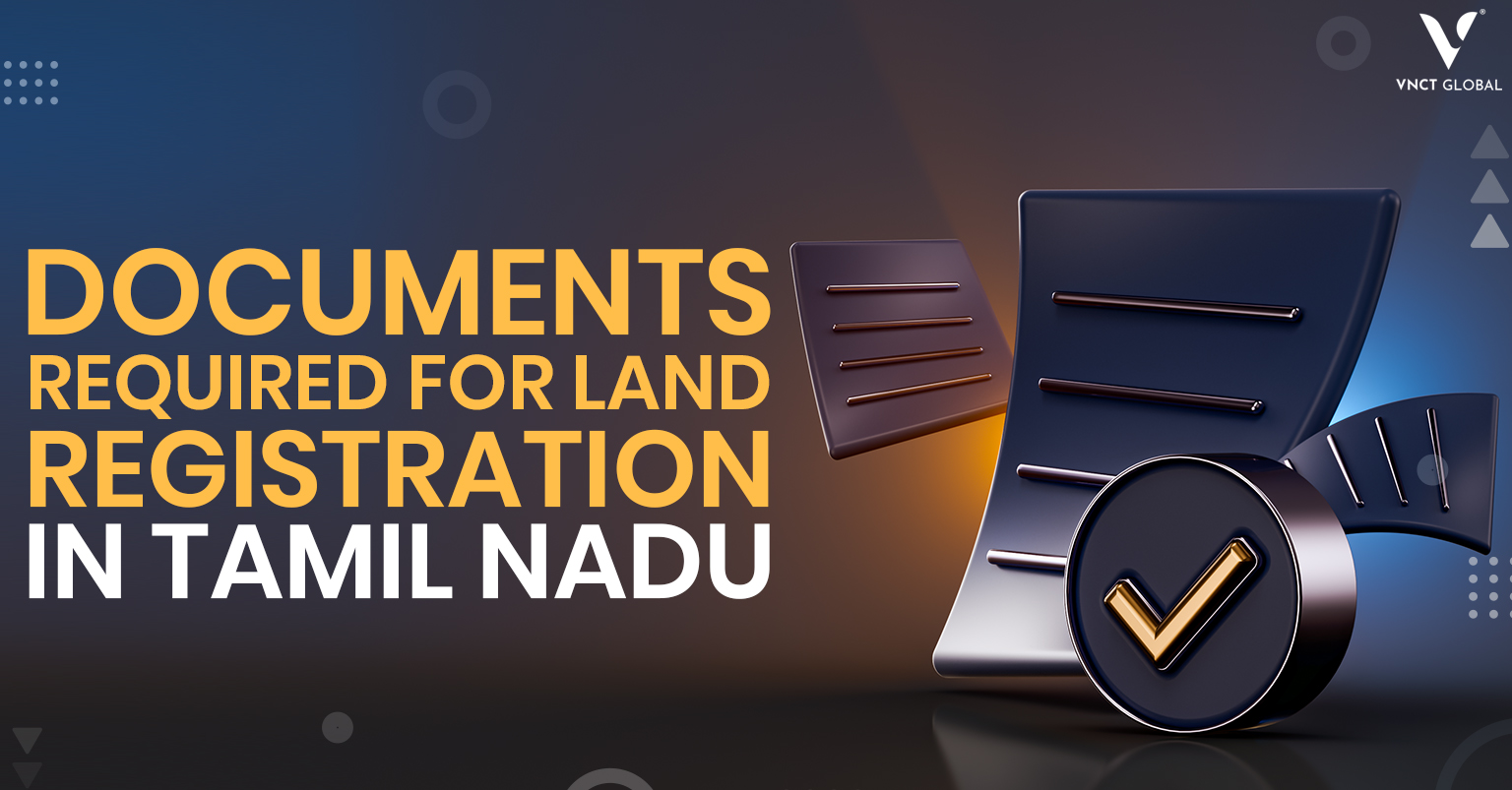Introduction
Buying land is a big milestone whether you’re planning to build your dream home, make a smart investment, or gift something meaningful to your family. But before you get too excited, there’s one thing you absolutely need to get right: the paperwork. In this guide, we’ll walk you through all the documents required for land registration in Tamil Nadu with clarity, simplicity, and a few helpful pointers along the way.
Whether you’re a local buyer or an NRI interested in villas in Chennai, Madurai, or Coimbatore, knowing what to expect can save you time and reduce stress.
Importance of Land Registration in Tamil Nadu
Land registration legally confirms your ownership. Without it, your name won’t appear in official land records, which could create legal trouble later. It also ensures your rights are protected under Indian law and gives you peace of mind knowing the property is truly yours.
Key Authorities Involved in Land Registration
You’ll mainly deal with the Sub-Registrar’s Office under the Registration Department of Tamil Nadu. Today, services are digitized via the STAR 2.0 portal making the process easier and more transparent.
15 Must-Have Documents for Land Registration in Tamil Nadu (2025)
1.ID & Address Proof (Buyer & Seller)
Aadhaar, PAN, passport or voter ID, plus recent address proof like a utility bill.
2.Parent Deed
This shows the property’s ownership history—through previous sale, gift, or partition deeds.
3.Patta, Chitta & Adangal
These land records confirm legal ownership, boundaries, and whether it’s agricultural or residential land.
4.Encumbrance Certificate (EC)
A critical document proving the land has no legal dues or mortgages.
5.Latest Property Tax Receipts
Ensures all past dues have been paid to the local authorities.
6.Sale Agreement
A clear record of the terms and conditions agreed upon by both buyer and seller.
7.Survey & Settlement Records
These help confirm the land’s location, size, and borders.
8.Approved Layout or Plot Plan
Especially necessary in planned communities like VNCT Global’s developments.
9.No Objection Certificate (NOC)
You may need this from departments like fire safety, municipal, or environmental, depending on the property type.
10.Stamp Duty & Registration Fee Receipt
Stamp duty is 7%, and the registration fee is 1% of the property’s market value.
11.TDS Certificate (if property value > ₹50 lakh)
The buyer must deduct 1% TDS and submit proof to the government.
12.Power of Attorney (if applicable)
If someone else is handling the registration on your behalf, this is a must.
13.Legal Heir Certificate (for inherited land)
If the property was passed down, this document confirms rightful ownership.
14.Court Orders (if relevant)
Required if the land was previously involved in any disputes or legal proceedings
15.NRI Documents
If you’re an NRI, you’ll need your passport, visa, OCI/PIO card, and a notarized Power of Attorney.
VNCT Global offers full NRI support, making it easier for you to handle paperwork remotely. From virtual site visits to signing support, our concierge service is present at events in Dubai, Singapore, and Doha—bringing Indian real estate directly to you.
Key Steps in Tamil Nadu Land Registration Process
- Get your documents verified
A lawyer or property consultant can help ensure everything’s in order. - Pay the stamp duty and registration charges
- Book your appointment online (STAR 2.0) or visit the Sub-Registrar Office
- Sign the documents in front of officials with witnesses
- Collect your registered deed and receipts
Fees and Charges for TN Registration
- Stamp Duty: 7% of market value
- Registration Fee: 1%
- Additional: Legal/consultant fees, document courier costs (for NRIs)
Important Tips for Land Registration in Tamil Nadu
- Double-check spelling of names in all documents
- Always carry both originals and copies
- Don’t ignore minor issues like mismatched names or old addresses they can delay registration
- If you’re overseas, VNCT Global NRI services handle everything, including arranging power of attorney documents and registration assistance
- Attend one of their global events they even host personalized walkthroughs and legal sessions tailored to NRIs
Conclusion
Buying land is more than a financial investment—it’s the start of a new chapter. By preparing the right documents required for land registration in Tamil Nadu, you protect that investment from unnecessary stress and legal risks.
Whether you’re planning to build on the outskirts of Chennai or secure a plot in one of VNCT Global’s high-end communities, getting the legal process right sets you up for success.
And for NRIs, it’s comforting to know there’s expert help available—from Dubai to Doha, VNCT Global walks the journey with you. So, if you’re ready to invest, contact us at VNCT Global—we’re just a call (or event) away.
FAQs For Land Registration in Tamil Nadu
- Can I register land online in Tamil Nadu?
You can book slots and upload documents on the STAR 2.0 portal, but signing must be done in person. - What’s the time limit to register a sale deed?
It must be registered within 4 months of signing to avoid penalties. - Can NRIs buy land in Tamil Nadu?
Yes, NRIs can buy property. VNCT Global offers full support, including Power of Attorney help. - Is Patta needed for registration?
It’s not mandatory but very useful for proving ownership and getting utilities. - How do I check for legal issues with the land?
Get the Encumbrance Certificate and have a lawyer review the title deeds.





